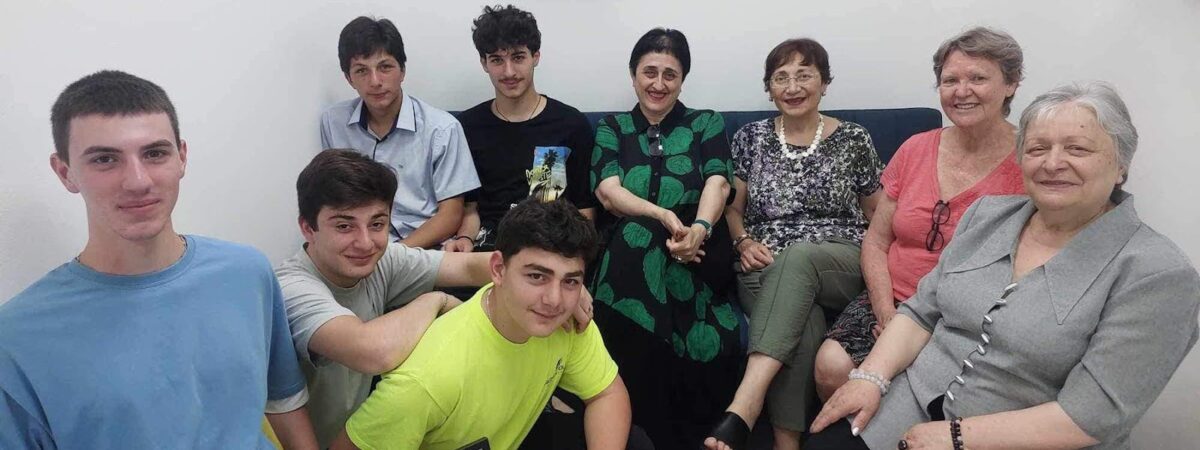
“Education is not preparation for life; education is life itself.”
– John Dewey
Sachkhere Public School No. 2 is located in Sachkhere, a rural town in the western part of the country of Georgia. This year, together with our Peace Corps volunteer teacher and teachers of English and Georgian languages, science, and civics, we collaborated to implement a project-based learning unit focused on children’s rights with five high school classes and ten elementary school classes at the school. The goal? To enhance students’ real-world skills by co-teaching an integrated, cross-disciplinary project-based learning curriculum.
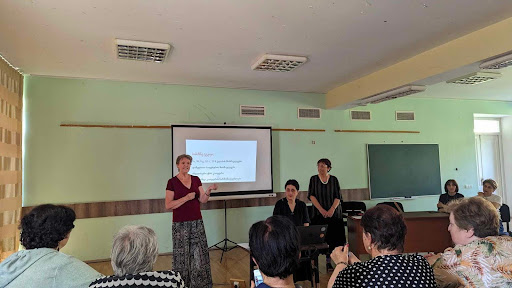
In this picture, you can see how my colleagues, our Peace Corps volunteer teacher and me collaboratively shared our expertise of implementing project based learning with the teachers of our school.
Listen to the caption.
Our primary objective was to encourage students to take on various roles and responsibilities, and each project activity was selected accordingly. Another objective was for students to develop critical thinking skills. While discussing cases about children’s rights, our students researched, analyzed, evaluated and made informed conclusions. Ultimately, we aimed to foster students’ collaboration and communication skills, particularly public speaking—an essential skill for today’s workplaces.
Through funding from small Peace Corps grants, we were able to integrate various technology tools into the lessons, thus bringing the learning process even closer to real-world applications.
As the project progressed, parents saw the outcomes, and their feedback showed us that our project-based learning was very successful. In their feedback, parents said that their children’s interests in their studies grew as they enthusiastically talked about the projects and activities they were implementing.
Our multidisciplinary approach enhanced students’ ability to synthesize and build cross-domain connections. Likewise, based on students’ identified interests, we invited guest speakers from the community to reinforce the importance of such connections. The general prosecutor of our town came to talk to students about children’s rights. A water management specialist from the Ministry of Environment spoke about water pollution. An American guest speaker conducted a lesson on public speaking that integrated Shakespeare’s soliloquy “All the World’s a Stage” with a game on developing critical thinking, team work, and leadership.
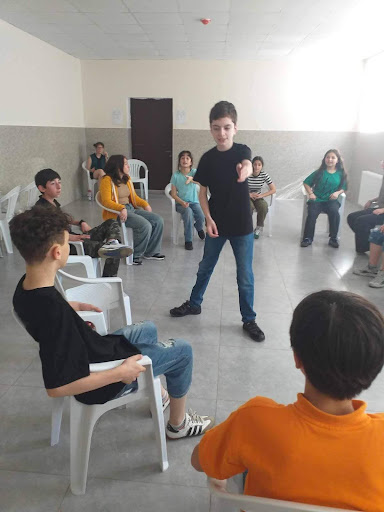
Students facilitate classroom activities to promote critical thinking.
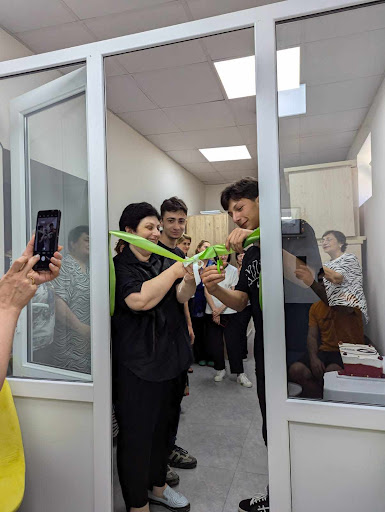
A moment of celebration as the Student Leadership Club and the school principal officially opened the new “Study Pod,” a resource and relaxation room that students designed and constructed with funding from the Peace Corps Georgia Small Grant program.
Listen to the caption.
To enhance students’ critical thinking and decision-making skills as they learned to approach problems from multiple angles, we used activities such as Edward de Bono’s Six Thinking Hats technique which itself is a parallel thinking process. This kind of thinking helped our students explore different perspectives on any given issue.
“With the knowledge I gained in this period I was able to discover new parts of myself, form new opinions on different concepts, and most importantly, learn how to listen.” – Tatia P, ninth-grade student and member of the Leadership Club
Debate also became a staple in our PBL curriculum. This encouraged students to research, formulate arguments, and engage in healthy discourse. A mock trial allowed students to engage in a simulated court case, taking on the roles of lawyers, witnesses, and jurors. This immersive experience improved not only their English language skills but also their public speaking, research, and analytical skills, and of course, helped them understand legal court processes.
We also implemented creativity-focused lessons where students engaged in brainstorming, mind mapping, and creative problem solving. Creating short stories on children’s rights and making public speeches helped students unlock their creative potential.
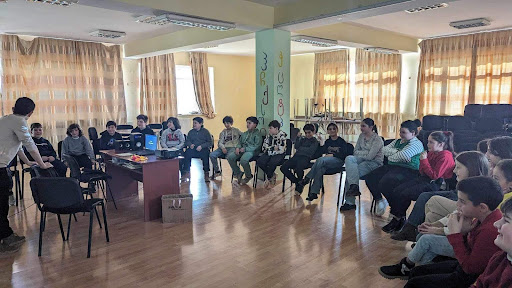
Members of the Student Leadership Team conducting a lesson about children’s rights for elementary school students.
Listen to the caption.